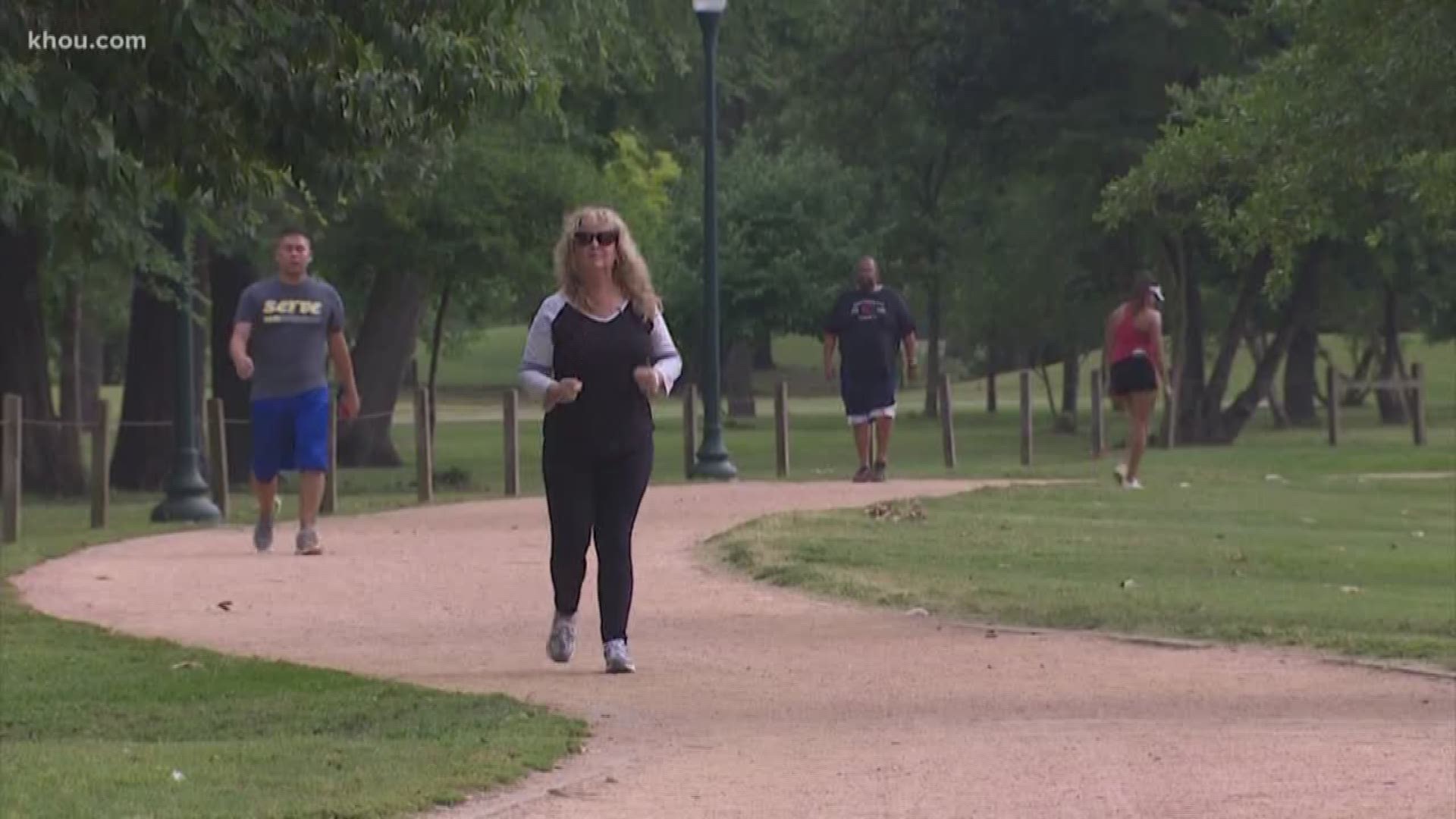HOUSTON — We all know exercise is good for your body, but what about your brain? Could certain types of exercise actually replace prescription medications for those suffering with depression? It’s an intriguing question for this "Be Mindful" report.
Kim Crespo is 62 years old and a proud grandmother who has battled clinical depression for more than 20 years.
She was diagnosed at age 36.
Kim remembers, “I had a lot sadness and uncontrollable crying.” That was in addition to fatigue, appetite loss, and insomnia. Her mantra? “I always said you have to fight it like a tiger.”
She fought the depression with therapy and traditional medications.
Seven years ago, her psychiatrist, Dr. Asim Shah, put her in a ketamine trial.
That opened a dramatic window for something else to help: exercise.
We know working out secretes endorphins which make you feel better. It turns out oxygenating your body, includes your brain.
That in turn can increase the size of the hippocampus which is involved in emotions, learning and memory.
Professor Shah is Executive Vice Chair of Baylor College of Medicine’s Menninger Psychiatry Department.
“Theoretically, if you increase the size of the hippocampus your emotions will be well controlled, meaning your depression will be relieved, your memory and learning will improve.” he said.
It’s an exciting prospect for those battling depression or Alzheimer’s.
Even more intriguing? The possibility of replacing nerves in the brain that have died or neurogenesis.
“That means formation of more nervous tissues. It happens with more exercise again because of increased oxygenation.” Dr. Shah explained.
Kim jokes, “When you're sweating, it's working.” She walks five days a week.
Dr. Shah recommends brisk aerobic exercise five days a week and at least 30 minutes a day to benefit your brain.
More research is needed in the field, but that’s tough. Dr. Shah says that's because pharmaceutical companies fund most of these studies to find drugs to make money.
There is no money in exercise for them, so there are very few studies to date.
For someone with mild depression, exercise alone could be enough therapy, but what about patients like Kim?
She says, “It runs strong in my family. My grandmother suffered with it, my dad, my mom.”
Dr. Shah, who's also Chief of Psychiatry at Harris County’s Ben Taub Hospital, believes exercise alone is not appropriate for those with severe depression.
Shah says, “Start exercising today and stop my medication? That's not the answer. You have to do both.”
For Kim, exercise is a key element in making her brain better.
“I believe that wholeheartedly because that's what I experience.” she said.
MORE HEALTH STORIES:
- By the Numbers: Sleep and how much of it you should get
- 'I think he's a miracle' | 9-year-old has fought through heart transplant, cancer, kidney failure
- Free smiles | Clinic gives dental work to those who can't normally afford it
- Quick Links: Mental Health Resources
- Man suffers a stroke from cracking his neck

